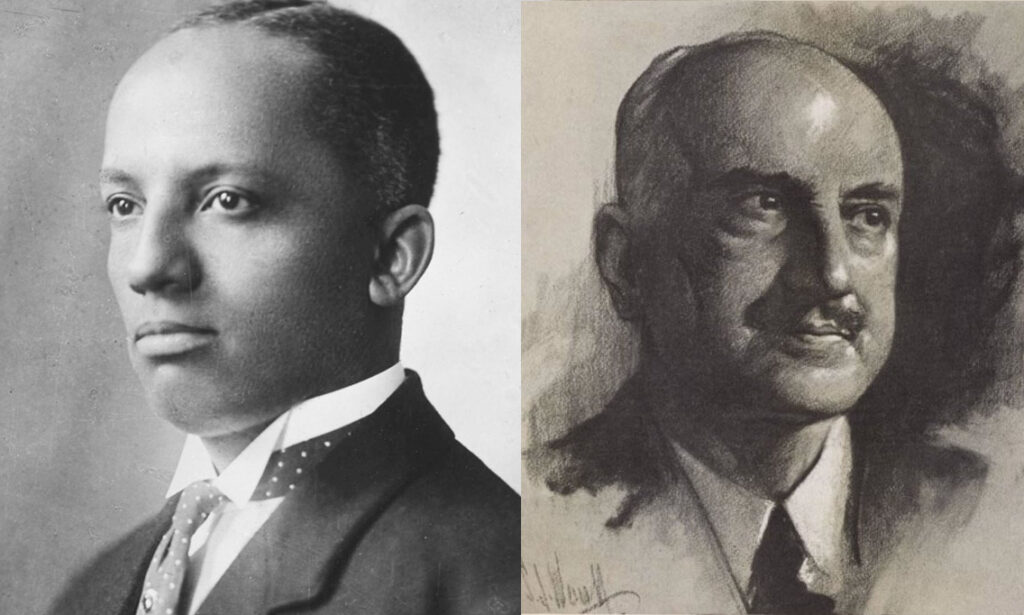
“Those who have no record of what their forebears have accomplished lose the inspiration which comes from the teaching of biography and history.”—Carter G. Woodson, Father of Black History Month
“Those who cannot remember the past are condemned to repeat it.”—Philosopher George Santayana
The study of history reveals the evolution of human society from the oldest written pictographs on cave walls, the cuneiform tablets of Babylon, and written manuscripts of the ancient world, to modern books and computerized information. Understanding and learning from history have been foundations of human progress and the advance of civilization.
The attempts to destroy history by destroying written records and fashioning ungrounded narratives have been many. The burning of the Library of Alexandria, destroying most of the texts of ancient Greek and Phonecian empires was followed by feudalism and “dark ages.” It was not until Ibn Rushd (Averroes) and St. Thomas Aquinas reintroduced Aristotle and rational thought that the Western World could experience new progress, even though there was a strong backlash in Islam led by Ibn Taymiyyah in the 14th century, and in Christianity with the Spanish Inquisition and the burning of Servetus and his writings at the stake. Independent science, knowledge, and philosophy have always been a threat to powerful rulers and elites who seek obedience and unquestioned loyalty from those they rule.
The most important evolutionary development for our modern world was the rise of the Protestant idea that each individual is, in the end, accountable to God and not to any earthly leaders, groups, social institutions, or states. This was facilitated with the printing of the Gutenberg Bible and the development of widespread reading and independent thought. This was followed by the rise of science and critical thinking. This cultural evolution was further facilitated by checks and balances on political power and the idea that rulers served at the will of the citizens, rather than the other way around. The rise of an independent economy that allowed all individuals to innovate and become entrepreneurs led to the vibrant middle classes and scientific-technological innovations that have culminated with smartphones carrying the knowledge of the world at everyone’s fingertips.
This social integration of culture, governance, and economy enables human beings to flourish. And, it has also given rise to the more recent desire to care for and understand our natural environment, including the atmosphere and the animal world. However, as in ancient times, there is a rising backlash against this cultural evolution revealed in the desire to subordinate individuals to groups, institutions, or states and the rise of new orthodoxies that would destroy history, threatening new forms of feudalism, serfdom, and dark ages. From the Chinese Cultural Revolution, the destruction of historical monuments and the banning of history books, to the recent censorship and “cancel culture” in the West, there are signs that our civilizations are forgetting the lessons of history that teach us what leads to functional progress and prevents us from chaos and death.
What follows is an overview of this social evolution in human history to enlighten our path to achieving a better world for all.
